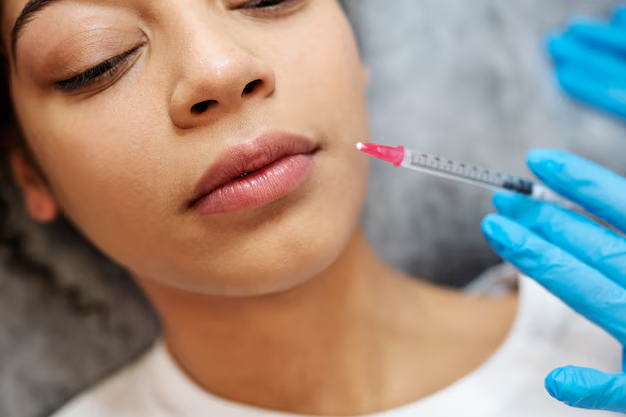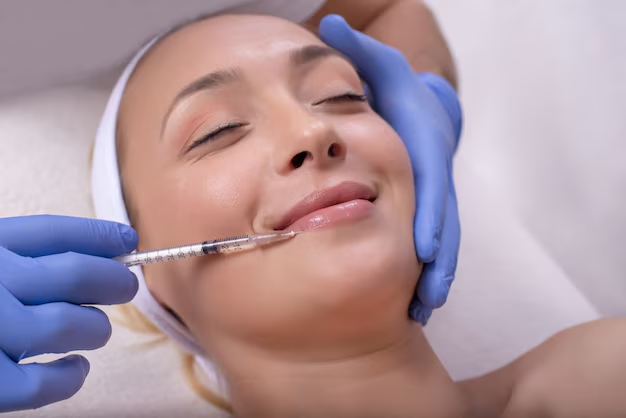EVERYTHING ABOUT THE LIP FILLERS
With beauty standards changing over the last decade, more luscious and fuller lips are the new trends in the industry. As lips are considered a source of beauty, more and more women go for lip injections.
Among other types of dermal fillers, lip augmentation by lip filler injections is the most popular. This FDA-approved filler procedure for lips is quick with minimal to no side effects. However, ensure that you choose the right cosmetic doctor or a cosmetic-based dermatologist.
Lip fillers are based on different types of fillings. The most popular type is the hyaluronic acid filler. These fillers have hyaluronic acid-based substances and are the safest and most common method today. Hyaluronic acid is a natural substance in the human body, capable of enhancing lip volume.
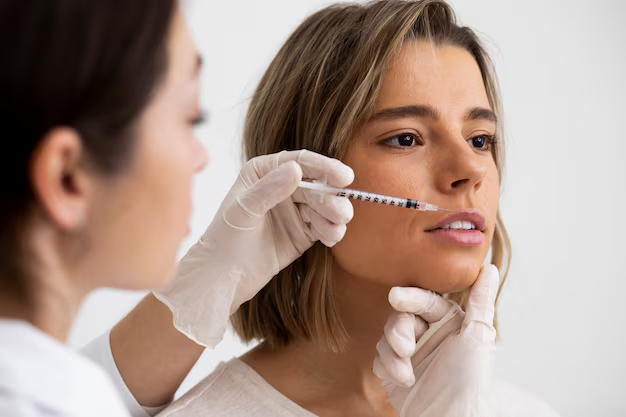
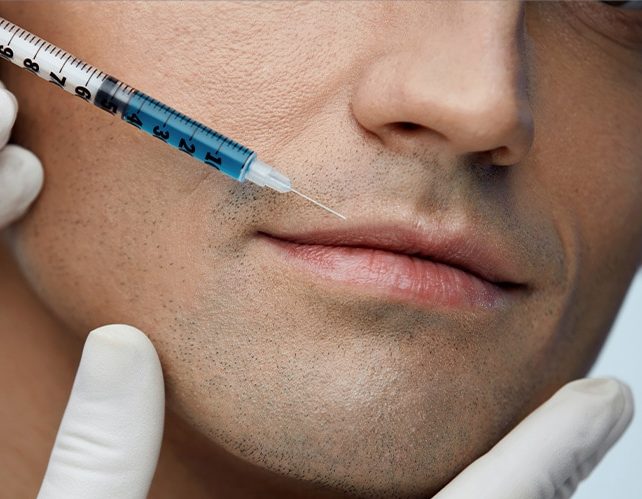
Suitable Candidates
Suitable candidates for lip fillers are generally healthy individuals who are unhappy with the size or shape of their lips. Lip fillers can help to add volume, definition, and symmetry to the lips and address a variety of concerns, including:
- Thin lips: Lip fillers can add volume and plumpness to thin lips, creating a fuller, more defined look.
- Uneven lips: Lip fillers can correct asymmetry and balance out uneven lips.
- Aging lips: The lips can become thinner and less defined as we age. Lip fillers can restore volume and create a more youthful appearance.
- Scars or other lip imperfections: Lip fillers can fill in scars or other imperfections on the lips. Creates a smoother and even surface.
Having realistic expectations and discussing your goals with a qualified cosmetic injector before the procedure is essential. Your doctor will be able to assess your suitability for the procedure. They will also be able to advise you on any potential risks or side effects of the procedure. Then recommend the best treatment plan based on your individual needs and preferences.
PRE-PROCEDURE TIPS
If you are considering getting lip fillers, there are some pre-procedure tips you should keep in mind. These are to help ensure the best possible results and minimize any discomfort. Here are some tips:
- Refrain from blood thinning medications: Certain medications, such as aspirin and ibuprofen, can thin the blood and increase the risk of bruising and bleeding during the procedure. Avoid these medications for at least a week before your appointment.
- Refrain from drinking alcohol: Avoid alcohol for at least 24 hours before the procedure, as it can dehydrate the body and increase the risk of swelling.
- Arrive with clean skin: Arriving at your appointment with clean skin is essential. This will help prevent infection and ensure the best possible results.
- Avoid strenuous exercise: Refrain from strenuous activity for at least 24 hours before the procedure. These kinds of activities can increase blood flow and cause additional swelling.
- Inform your doctor: Inform your doctor about your medical history, allergies, and previous injections.
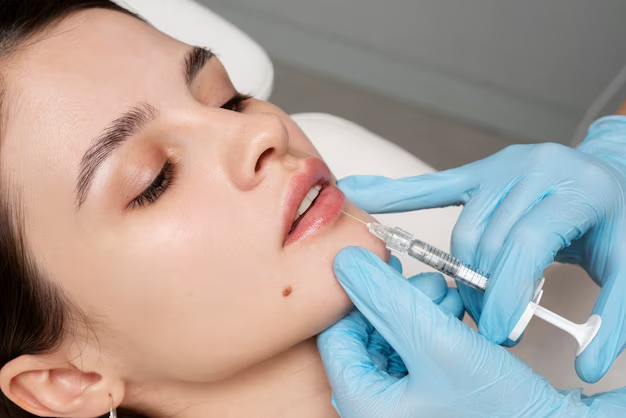
Remember, your doctor may have additional instructions specific to your needs. Therefore, follow their recommendations closely to ensure the best possible results.
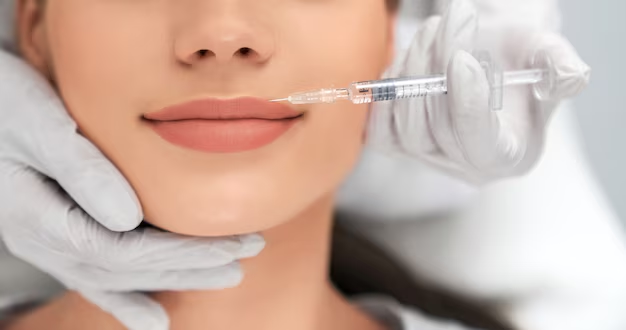
POST-PROCEDURE TIPS
After getting lip fillers, taking care of your lips is essential to ensure a smooth recovery and optimal results. Here are some post-procedure tips to keep in mind:
- Apply ice: Applying an ice pack or a cold compress to the lips can help reduce discomfort, swelling, and bruising. Avoid applying ice directly to the skin – wrap it in a cloth or towel first.
- Avoid touching or rubbing your lips: It is important to avoid touching or rubbing your lips for the first 24-48 hours after the procedure. This can help prevent infection and allow the filler to settle correctly.
- Avoid strenuous exercise: Avoid strenuous exercise and activities that cause excessive sweating for at least 24 hours after the procedure. This can help reduce swelling and prevent the filler from shifting.
UNSUITABLE CANDIDATES
While lip fillers are a safe and effective cosmetic procedure for many people, some individuals may not be suitable candidates. Some of the reasons why someone might not be a good candidate for lip fillers include:
- Pregnant or nursing women: It is not recommended to have lip fillers while pregnant or breastfeeding.
- Allergies or sensitivities: People with allergies or sensitivities to certain substances, such as lidocaine or hyaluronic acid, may not be good candidates for lip fillers.
- Blood clotting disorders: Individuals with blood clotting disorders, such as hemophilia, may not be suitable candidates for lip fillers.
- Autoimmune disorders: People with autoimmune diseases, such as lupus or rheumatoid arthritis, may have an increased risk of complications with lip fillers.
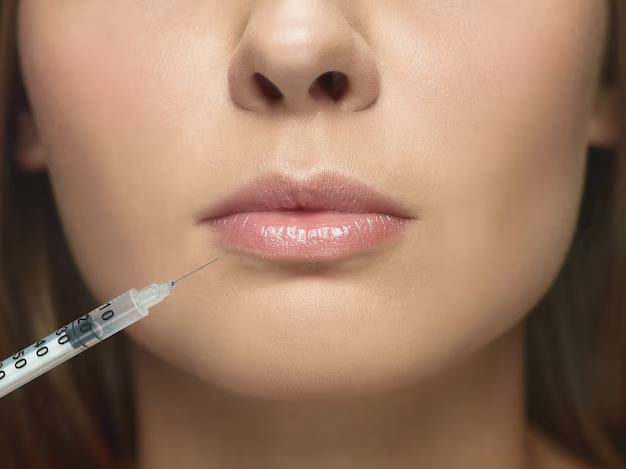
- Active infections or cold sores: It is recommended to wait until any active infections or cold sores have cleared up before having lip fillers.
- Medications: Certain medications, such as blood thinners or immunosuppressants, may increase the risk of complications with lip fillers.
It is essential to consult with a qualified and experienced medical professional. So that they can evaluate your individual situation and determine if you are a suitable candidate for fillers.
Stages of Lip Fillers
Lip filler procedures typically involve the following stages:
- Consultation: Before the process, you will meet with a licensed cosmetic surgeon or a plastic surgeon to assess your lip shape and size. In this consultation you will discuss your goals, and determine the best lip filler treatment.
- Preparation: Your doctor will clean the injection site. They may apply a topical anesthetic cream or local anesthetic to minimize discomfort during the procedure.
- Injection: Using a fine needle, your doctor will inject the filler into the appropriate areas of your lips. You may feel slight pressure or discomfort during this stage.
- Massage: After injecting the filler, your doctor may massage the area to ensure an even distribution of the product. This stage is conducted only if the doctor thinks it is needed.
- Assessment: Once the filler has been injected, your doctor will assess the results and make any necessary adjustments.
- Post-treatment care: You will be given aftercare instructions, such as avoiding certain foods and activities, applying ice packs to reduce swelling, and taking painkillers if needed. It is important to follow these instructions to ensure the best possible results and minimize the risk of complications or side effects.
Overall, the procedure typically takes around 30 minutes to complete. After that you should be able to resume your normal activities immediately afterward.
